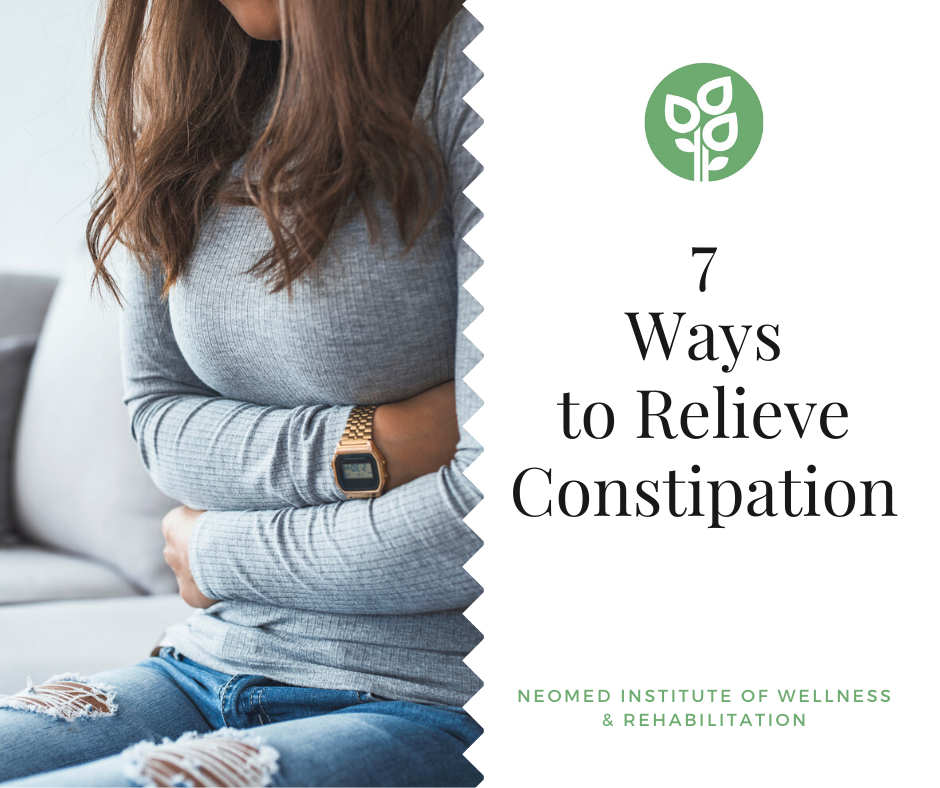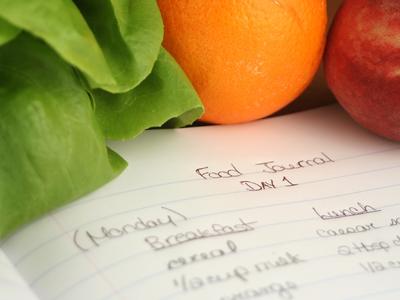7 Ways to Relieve Constipation
Constipation is a very common symptom that most of us have encountered at one point or another in our lives. It is definitely not fun, especially when it turns into a chronic issue.

What is constipation?
Constipation is not only when one has difficulty releasing a stool, but it is also present if one does not go to the toilet for days or even weeks at a time. Also, if the stool looks like hard pebbles of pebbles stuck together, this is also a sign that one has constipation.
What causes constipation?
In functional medicine, we always like to look at the root cause of a problem. Uncovering the root cause gives us great insight into how to provide therapy for the issue. In the case of constipation, the following root causes can apply:
Not enough stomach acid – Having sufficient amounts of stomach acid is critical to begin the digestion process, to break down food sufficiently, to absorb minerals and some vitamins, to protect against bacterial overgrowths, and to stimulate the production of digestive enzymes. Without enough stomach acid, food is left to fester in the small intestine causing dysbiosis or an unbalance of healthy versus bad bacteria. This process can cause issues like SIBO (Small Intestinal Bacterial Overgrowth) and IBS-like symptoms such as abdominal bloating, flatulence, GERD or reflux, and constipation. Also, since the pancreas is not stimulated in the right way from insufficient stomach acid, the enzymes needed to break down food are not present in high enough numbers to further the breakdown of food. Since this is the case, it gets very easy for food to “get stuck” in the intestine, making it harder to go to the toilet.
Methane-dominant SIBO – Most patients with gut issues have learned about SIBO or Small Intestinal Bacterial Overgrowth. What may not be so obvious is that bacteria that overgrow in the small intestine may produce either hydrogen or methane gas. Methane-dominant SIBO is closely associated with constipation.
Congested Liver – The liver has many functions in the body. One of its main functions is detoxification. Simply put, one of the ways in which the liver detoxifies the body is by producing bile, which holds enzymes for breaking down fats as well as stores toxins. The bile is released into the intestine in order to break down fats and to get rid of waste. However, if the liver is sluggish or filled with stones, this does not happen properly and can also be a cause of constipation. Usually, if one has floating stools that resemble pebbles, the liver can be a root cause of one’s constipation issues.
Sluggish thyroid – Thyroid hormones are needed for the gut to have good motility. If you have high antibodies or not enough thyroid hormone or you have thyroid hormone resistance, chances are that you may have a sluggish gut as well.
Impaired migrating motor complex – This is just a fancy word for the electrical activity that stimulates the movement of the intestines. This can be impaired from all the aforementioned reasons such as low thyroid function, SIBO, dysbiosis, low stomach acid, low digestive enzymes, a congested liver, or inflammation in general.
A diet filled with sugar and refined grains and not enough vegetables – This one is a bit obvious but again worth mentioning. We mentioned that one of the things that help the gut to move in the right direction are good microbes. These friendly bacteria depend on fibre for food and if they do not get enough, they cannot help us the way we need to be helped. Therefore, it is good sense to avoid processed foods and work on implementing a plant-rich diet as a lifestyle change.
Dehydration – Again, another obvious culprit but very important when it comes to constipation. Imagine the analogy of a water slide at an amusement park. Think of trying to slide down that slide in the middle of summer with no water. My guess is it would not be as easy and would probably be a bit painful. The same applies to the gut. Even if you eat enough fibre, if there is not sufficient water, the fibre has a hard time moving in the right direction.
Decreased electrolytes – Electrolytes like sodium, potassium, and magnesium are important for staying hydrated. If you are one of those people that drinks a lot of water but still feels dehydrated, this may be an option to explore to help with constipation.
So, now that we have covered some of the main issues that cause constipation, let’s work through seven of the therapies we can use to alleviate it.
7 Ways to Relieve Constipation:
-
Supplement with Betaine HCl – This is a supplement that can help to boost stomach acid production in order to help break down food sufficiently and to increase the production of digestive enzymes. This supplement should be used when there is an animal protein such as meat, chicken, or fish in the meal. Betaine HCl should not be used by people who have a history of ulcers. The ulcers need to be healed first, then Betaine HCl should be used only under the supervision of your functional medicine practitioner or naturopath.
-
Eat well and stay hydrated – Make sure to eat the colours of the rainbow daily. Not only will your health benefit from all the phytonutrients in a plant-rich diet, but your gut will be happier as well. For people with a really inflamed gut, raw vegetables can actually be abrasive to the gut lining causing pain or more IBS-like symptoms. If this is the case for you, be sure to cook all vegetables until you are able to tolerate raw ones. Also, remember to drink at least 2.5 litres of water per day for proper hydration. If you suspect that you need electrolytes, adding coconut water to your daily water bottle will help.
-
Use magnesium – Different forms of magnesium such as magnesium oxide or magnesium citrate can work as stool softeners and stimulate the migrating motor complex. I would start with a lower dose like 400 mg, taken 1 hour before bedtime. If this dose does not work for you, you can work with a functional medicine practitioner, nutritionist, or naturopath to increase the dose until you start going to the toilet regularly. A word of caution with magnesium oxide: It can be abrasive, therefore I recommend to use it only with really difficult cases of constipation and then move onto magnesium citrate once constipation is better.
-
Treat SIBO or dysbiosis – With methane-dominant SIBO there are various methods of treating this, but it is very important that you do. If this is not treated, constipation can keep coming back. Typically, a functional medicine practitioner will recommend blends of oregano oil, allicin from garlic, grapefruit seed extract, and other herbs to help kill the bad bacteria responsible for SIBO along with a probiotic. However, since everyone is different, make sure to consult a health practitioner knowledgeable in this area to give you individualized advice. SIBO is detected through specific hydrogen or methane breath test.
-
Address liver health – If the liver is not producing enough bile or it is getting stuck, you can supplement with some liver support nutrients such as milk thistle or N-acetyl-cysteine as well as supplement with some ox bile to help break down fats more efficiently. You can also seek guidance from your naturopath to understand better detoxification therapies specifically for your liver.
-
Exercise – Movement, in general, can help to stimulate the mitochondria (or your cell’s energy producers) to increase the migrating motor complex of your gut. If you are sedentary or have an office job, your constipation may be the result of sitting for too long. Therefore, make the effort to take up an activity you enjoy to help your gut to move as well.
-
Check your thyroid – If all else has failed in trying to alleviate constipation, it’s time to check your thyroid function. Make sure to get a full thyroid panel done testing for TSH, Free T4, Free T3, Reverse T3, and TPO and thyroglobulin antibodies. Your health practitioner will help you to achieve optimal thyroid levels so that your bowel moves in the right direction.
Key points to remember:
- Constipation is not only difficulty going to the toilet but is also not going for days or weeks at a time.
- Work with a functional medicine practitioner to find the root causes of your constipation.
- Eat the colours of the rainbow daily and eat a plant-rich diet to increase fibre intake.
- Stay hydrated and increase electrolytes if necessary.
- Treat SIBO, work on liver health, and check your thyroid.
- Remember to move and keep your gut happy.
Article by Tina Christoudias-Spyrou, Functional Medicine Practitioner at Neomed Institute of Wellness and Rehabilitation
If you need expert help to overcome chronic constipation feel free to contact us for a consultation. We have a number of Digestive Disorder treatment programs here at Neomed in Cyprus.







